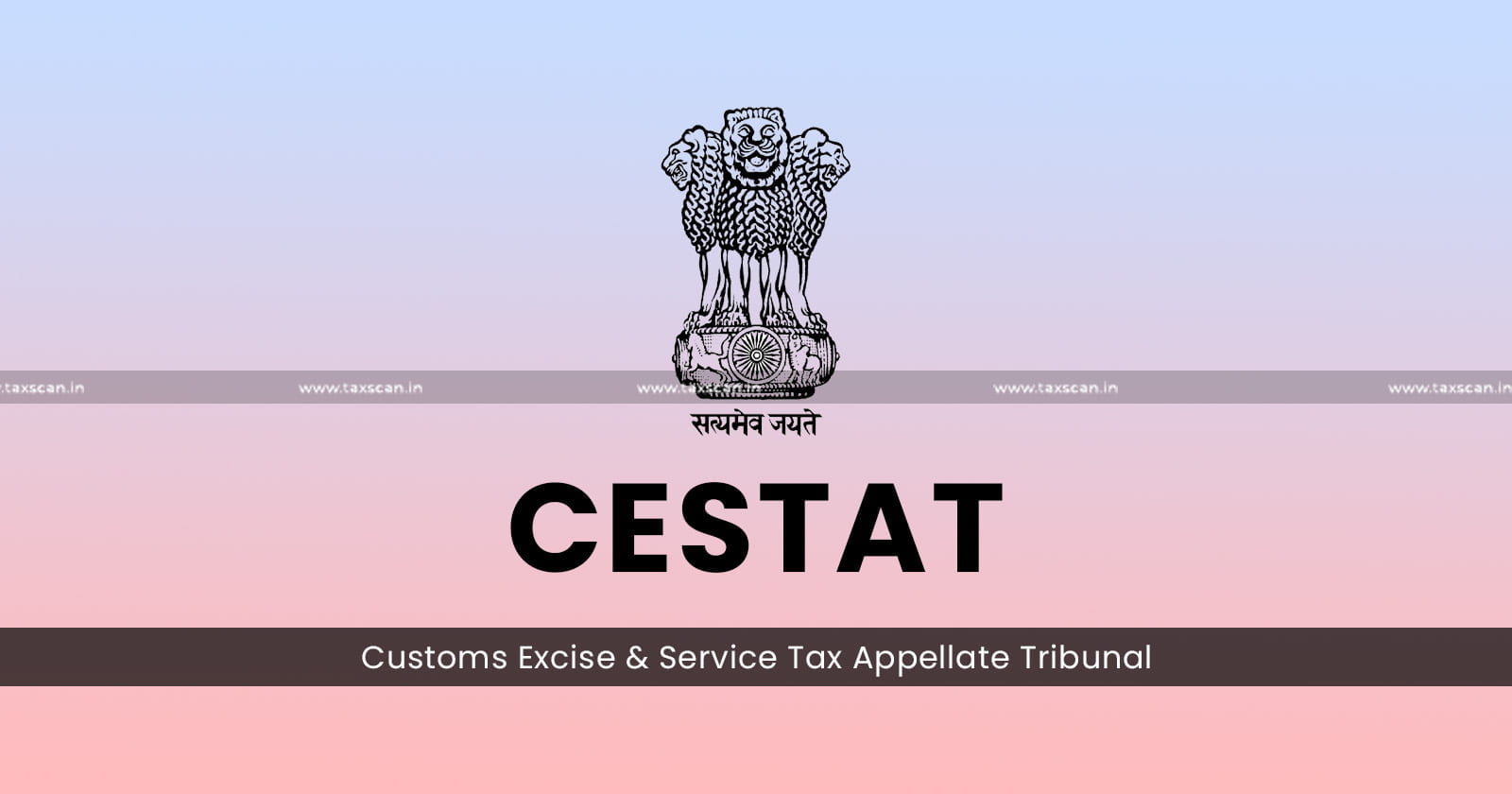Excise Registration can be Allowed If Either Party Is Manufacturer and Under Take Excise Duty Liability: CESTAT [Read Order]
The Tribunal observed that if either party was to apply for registration as a manufacturer the department would have accepted the application.

CESTAT – Excise Registration – Excise Duty – Excise Duty Liability – Manufacturer – taxscan
CESTAT – Excise Registration – Excise Duty – Excise Duty Liability – Manufacturer – taxscan
In a recent case, the Ahmedabad bench of the Customs, Excise & Service Tax Appellate Tribunal (CESTAT) has held that Excise registration can be allowed if either party is a manufacturer and undertakes Excise duty liability. The Tribunal observed that if either party was to apply for registration as a manufacturer the department would have accepted the application. Excise registration is only to the effect that one of the parties undertakes to discharge the excise duty liability on the goods manufactured. This cannot be interpreted to mean that the activity done by the other party is not a manufacturing activity.
The respondent-assessee, Standard Pesticides Pvt. Limited is engaged in the manufacture of pesticides on a work basis for M/s. Syngenta India Limited, Pune. The respondent assessee is also registered with the service tax department for various categories of services such as Consulting Engineering services, Maintenance or Repair services, Erection, Commissioning and Installation Services, Business Auxiliary Services, Goods Transport Agency services etc.
As per the terms and conditions of the agreement entered by the respondent-assessee with M/s. Syngenta India Limited for job work they were entitled to receive variable costs and a fixed cost from M/s. Syngenta India Limited. During the audit of the financial records of the respondent-assessee, the department noticed that from 01.07.2012 to 31.01.2013, the respondent-assessee has collected an amount of Rs. 2,17,40,000/- as reimbursement of fixed cost from M/s. Syngenta India Limited by issuing debit notes stating therein that “Being amount debited for reimbursement of fixed cost from July 2012 to January 2013 as per new agreement”.
After scrutiny of the agreement, it was noticed by the department that the above-mentioned amount has been paid by M/s. Syngenta India Limited to the respondent-assessee for the fact that they have agreed to not produce any goods for any other party and not use any machinery, plant equipment or storage to manufacture products at their plant for any other party. The department has issued two show cause notices dated 22.05.2014 and 16.02.2015 which have been adjudicated by the common order-in-original dated 08.02.2016.
The Commissioner has failed to note that when statute has defined a particular activity viz. 'agreeing to the obligation to refrain from an act, or to tolerate an act or a situation, or to do an act' under the declared service made liable to Service Tax w.e.f 01.07.2012, he ought to have decided the impugned case covering the period from 01.07.2012 onwards, in light of provisions of the Finance Act, 1994, as amended and rules made there under.
It was observed that the same activity cannot be considered as manufacturing and subjected to excise levy and at the same time considered to be a service and subjected to service tax. This principle does not need much discussion and is also recognized under Section 65(19) of the Finance Act, 1994 levying service tax on the processing of goods not amounting to manufacture.
Process amounting to manufacture is kept specifically out of the scope of the entry. That being the case such an activity cannot be brought under service tax levy under “Business Support Service” because the underlying principle will apply to this entry also. The specific exclusion is not seen under 64(104c) for the reason that the legislature intended to deal with the issue under Section 65(19).
A two-member Mr Ramesh Nair, Member (Judicial) and Mr C L Mahar, Member (Technical) observed that if either party was to apply for registration as a manufacturer the department would have accepted the application. Excise registration is only to the effect that one of the parties undertakes to discharge the excise duty liability on the goods manufactured. This cannot be interpreted to mean that the activity done by the other party is not a manufacturing activity.
The tribunal observed that Notification 214/86-C.E. only provides a mechanism by which the duty liability is fixed on the person supplying raw material and enables the clearance of the goods from the factory of actual manufacture subject to undertaking for the payment of duty by the other party or its further use in the manufacture of excisable goods. In a situation where the other party ( JLSL ) was willing to pay excise duty at the time of clearance of the goods from the factory of manufacture, there was no need to adopt the procedure laid down in Notification 214/86-C.E.
While dismissing the appeal and holding that the impugned order-in original is legally sustainable.
To Read the full text of the Order CLICK HERE
Support our journalism by subscribing to Taxscan premium. Follow us on Telegram for quick updates


